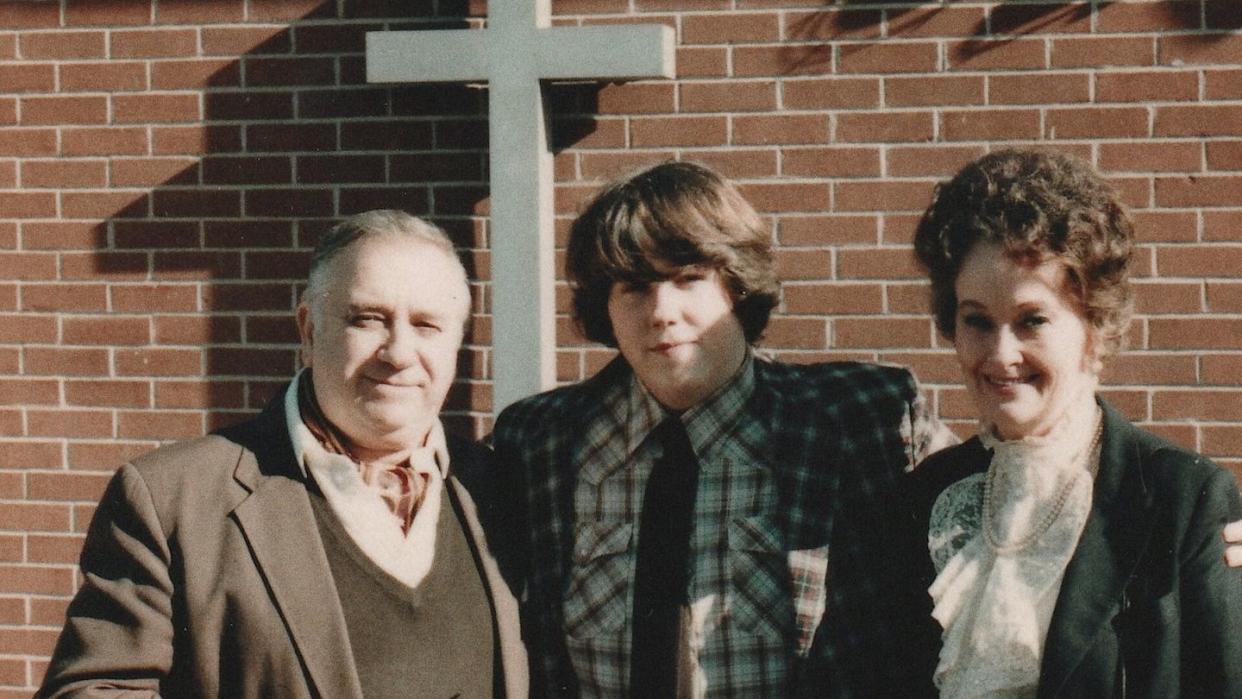'The Devil on Trial' Is Based on a Chilling True Crime Case

- Oops!Something went wrong.Please try again later.
- Oops!Something went wrong.Please try again later.
In The Devil on Trial, the horror documentary now streaming on Netflix, filmmaker Chris Holt sets out to chronicle the events leading up to the first time that demonic possession was ever used as a criminal defense in a murder trial in the United States.
In 1981, right around the time that "Satanic panic" was beginning to entrench itself in the American consciousness, 19-year-old Arne Cheyenne Johnson was arrested for stabbing his landlord, Alan Bono, to death. In the aftermath of the murder, Johnson stated that he had no memory of hurting anyone, and that he had been possessed by the devil at the time.
But much of the documentary's running time is dedicated to events that took place several months earlier, after Johnson's 11-year-old brother-in-law David Glatzel, told his family that he feared he was being possessed. David's mother contacted paranormal experts Ed and Lorraine Warren (who have since been famously portrayed by Patrick Wilson and Vera Farmiga in The Conjuring), and an exorcism was arranged. However, during the exorcism, when David began to display extreme distress, Johnson reportedly said: "Leave this little kid alone. Take me on. I’m here. Take me on."
This account would form the basis of Johnson's initial defense, and the story drew national attention, becoming known as the "Devil made me do it" case.

If this is all sounding faintly familiar, that's because Johnson's case was loosely adapted into the 2021 horror sequel The Conjuring: The Devil Made Me Do It, which focuses heavily on the involvement of the Warrens and purports, within its fictitious narrative, that the supernatural events really occurred.
"There are people who tell lies, but I sat down with David and Arne and Alan and Carl, for hours on end, and their stories never changed," says director Chris Holt. "I think they were telling me the truth — but it’s their interpretations of the truth rather than it being a hardened fact. But they believed—and I believed—what they were saying is truthful."
Ultimately, the judge refused to allow demonic influence to be used as a valid defense in Johnson's trial, and all evidence related to possession was thrown out. With that argument moot, the evidence against Johnson was damning: Johnson's sisters were eyewitnesses to the crime. Despite his continued claims that he never stabbed Bono, Johnson eventually switched his plea to self-defense, and was charged with first-degree manslaughter rather than murder. He was sentenced to 10 to 20 years in prison.
In the documentary, Johnson's attorney Martin Minnella admits to having been convinced by Johnson's original claims of possession. "I believed in the story, I believed in the defense," he says. "And I also believed there probably wasn’t another lawyer in the state that would represent him with this defense."
You Might Also Like

